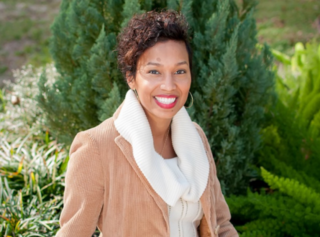Parenting
The “New Now”: How Parents Can Thrive in a Post-COVID World
Navigating parenting, working, and communal self-care in a transitional time.
Posted May 9, 2022 Reviewed by Davia Sills
Key points
- For many people around the world, navigating the COVID-19 pandemic has increased levels of chronic stress and worry.
- Parents have a responsibility to manage their own stress responses to recent events as well as their children's reactions.
- Children rely on parents to maintain the equilibrium of the family, engage in renewal, and demonstrate a sense of hopefulness.
This post was written by Maurya W. Glaude, Ph.D., MSW, LCSW-BACS.
Navigating the COVID-19 pandemic (in addition to racial disharmony and disasters, including the war in Ukraine) has increased levels of chronic stress and worry for many. We each carry different emotional loads and have our own unique responses to grief over the loss of loved ones, property, routines, and our livelihood. Yet, specifically for parents, the periodic school closures, children’s school refusal, as well as the physical and mental health effects of the interruptions in the academic programs of our children and related loss have been of great concern.
Many parents are still caring for children and working remotely or in hybrid situations. More broadly, the collateral effects of the recent historical events have made us adapt our caregiving, working, dating, and even self-care routines in the “new now.” In the coming months, parents may ask: How do I navigate working from home and caregiving? What are some practical ways to navigate physical and mental wellness in the “new now”?
Parents have a responsibility to manage their own stress responses to recent events as well as their responses to their children’s emotional needs. Parents are particularly vulnerable to stress if they are managing their own questions around changes in employment and loss related to the recent pandemic and human-related disasters. During these times of disruption, parents and children may experience emotional reactions, including fear and sadness (Ingul, 2019; Warren, 2021). Appropriately, our children look to parents to maintain stability for the family and to minimize worrying about things out of our control.
Children rely on parents to maintain the equilibrium of the family, engage in renewal, and demonstrate a sense of hopefulness. Thus, parents may create some consistency and predictability with appropriate boundaries for themselves and their children, especially around information sharing. Parents may see spring as a time of renewal and create a sense of balance around upcoming summer activities, vacations (or staycations), socialization, and community-building. These efforts may include:
- Adjusting the schedule to include more socialization with other children and adults (i.e., additional playtime, additional screentime, family meals and games, outdoor gatherings and meals, and group activities (virtual or in-person)
- Limiting updates about world events to weekly (i.e., war, COVID-19) and prioritizing safety, including adherence to local mandates from expert sources (i.e., the CDC, local government)
- Refreshing and redecorating the home and workspaces with a new look for the whole family to enjoy (i.e., add homemade or store-bought posters, art, and fresh paint)
- Increasing outdoor activities and community involvement (i.e., community gardening, mutual aid and volunteerism, club sports, family game night, hybrid or in-person community Bingo, and sporting events)
- Monitoring emotional reactions (i.e., track your mood and revisit a conversation when appropriate or necessary for repair and healing)
The unpredictability of the recent events has created some uncertainty, and for many families, time together has increased opportunities for parents to re-establish and maintain healthier boundaries. When parents set boundaries and personal limits around safety, they also model self-respect for their children. Additionally, creating and maintaining routines for the family provides a level of dependability and predictability for our children to experience self-actualization (Maslow, 1943). Moreover, the unknowns of recent times have reminded us of our humanness and extended opportunities for parents to communicate with their children about the challenges and changes we are all experiencing. More frequent communication is warranted as we navigate the “new now.”
In addition to a balance of structure and family-oriented activities, parents also need to prioritize their own social, spiritual, emotional, and physical well-being. We must take care of ourselves and model these healthier habits for our children to see us prioritizing our physical, professional, relational, emotional, psychological, and spiritual selves. There is no perfect plan, and one size does not fit all; therefore, attention to one’s own self- and communal care needs is key. The “new now” is a great opportunity to renew oneself through self- and communal care such as:
- Joining a gym, outdoor yoga class, or virtual classes
- Generating a new playlist
- Creating chalk art, bead art, or another type of craft
- Planting or gardening
- Photography
- Hydrating, praying, breathing, and practicing culturally relevant mindfulness
In the end, parents are humans too. All humans are wired for resilience, and all humans—including children and parents—experience emotional distress. Recent events have highlighted the biological need for us all to be in community with others and reminded us that we are genetically wired to seek relationships and connectivity. These interpersonal relationships help reduce stress, trigger the firing of healthy endorphins, dopamine, oxytocin, and serotonin at the synapses within the brain, and reduce the hormonal response of cortisol.
To continue to thrive, we must monitor our social, spiritual, emotional, and physical thermometers and adjust responsibly and responsively according to our bodily needs. Parents who are experiencing significant distress or worrying may consider contacting a licensed clinical social worker or another mental health professional for in-person or telehealth services. Notably, many LCSWs provide EAP, pro bono services as well as sliding fee scales for underemployed or underinsured families.

Visit Psychology Today's Therapist Directory to find a mental health professional near you.
This is an invited blog for Resilience in The Shadows by Maurya W. Glaude, Ph.D., MSW, LCSW-BACS. Dr. Glaude is a caregiver, artist, and faculty member at Tulane University, School of Social Work. She is a practicing licensed clinical social worker and clinical supervisor specializing in family preservation.
References
Ingul, J. M., Havik, T., & Heyne, D. (2019). Emerging school refusal: a school-based framework for identifying early signs and risk factors. Cognitive and Behavioral Practice, 26(1), 46-62.
Maslow, A. H. (1943). A theory of human motivation. Psychological Review, 50(4), 370–396. https://doi.org/10.1037/h0054346
Warren, B. J. (2021). Evidence-Based Assessment and Management of Substance Abuse and Addiction Spectrum. A Practical Guide to Child and Adolescent Mental Health Screening, Evidence-based Assessment, Intervention, and Health Promotion, 297.




